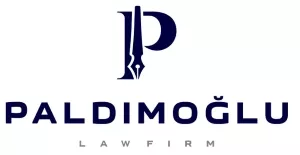The Law on Amending the Turkish Commercial Code and Certain Laws was published in the Official Gazette dated 29.05.2024. This amending law introduces significant changes to many laws, and this article examines the amendments made to the Turkish Commercial Code.
Amendments to the Turkish Commercial Code
With the amendment, changes were made to Article 366 of the Turkish Commercial Code. Previously, joint-stock companies were required to elect a chairman and a vice-chairman of the board of directors every year. This requirement for annual elections has been removed. According to the new version of the article, the board of directors elects a chairman and at least one vice-chairman from among its members to act in the absence of the chairman. The articles of association may stipulate that the chairman and/or the vice-chairman be elected by the general assembly.
Non-transferable Powers of the Board of Directors
The amendment law also introduced some changes concerning the non-transferable powers of the board of directors. Accordingly, the appointment and dismissal of managers and similar qualified persons, except for branch managers, have been removed from the non-transferable duties of the board of directors. The rationale is to facilitate the work processes of companies with many authorized employees at all levels, especially in companies with a wide branch network, by allowing the board of directors to delegate these powers.
Right of the Board of Directors to Obtain Information and Conduct an Examination
The procedure for convening the board of directors has been clarified within the scope of the right of the board of directors to obtain information and conduct an examination. With the amendment law, each member of the board of directors can request the chairman in writing to convene the board of directors. If the request is deemed appropriate, the chairman calls the meeting. However, if the majority of the board members request in writing, the chairman must call the meeting within thirty days from the date the request reaches him. If the board of directors is not called to a meeting within this period, or if the chairman or vice-chairman cannot be reached, the meeting can be called directly by the requestors. For meetings held upon such calls, the quorum and decision-making rules stated in the first paragraph of Article 390 apply. According to Article 390, unless a contrary and stricter provision is stipulated in the articles of association, the board of directors convenes with the majority of its members and takes decisions by the majority of the members present at the meeting. This rule also applies if the meeting of the board of directors is held electronically. A different procedure for convening the board of directors can be stipulated in the articles of association.
No Judgment for Legal Expenses Against the Trade Registry Office
Article 7 of the Turkish Commercial Code has been amended to stipulate that in legal proceedings concerning the revival of a company or cooperative whose registration was canceled in accordance with the procedure specified in this article, no legal expenses or attorney fees can be imposed against the relevant trade registry office.
Regulation for Companies Not Meeting the Minimum Capital Requirement
The minimum capital requirement for limited liability companies and joint-stock companies had been increased fivefold. Thus, the minimum capital requirement for limited liability companies was raised from 10,000 TL to 50,000 TL, and for joint-stock companies from 50,000 TL to 250,000 TL.
You may be interested in: Minimum Capital Amount Increased in Joint Stock and Limited Companies in Turkey
With the amendment law, it has been stipulated that companies that do not meet the minimum capital requirement will be dissolved if they do not increase their capital by the end of 2026. Non-public joint-stock companies that have adopted the registered capital system and have issued capital of at least 250,000 TL must raise their initial and issued capital to 500,000 TL by the specified date. According to the amendment, no quorum is required for general assembly meetings held to increase the capital to the minimum prescribed amounts, decisions are made by the majority of the votes present at the meeting, and no preferential rights can be used against these decisions. The Ministry of Trade is authorized to extend this period, which ends on 31.12.2026, by one year at a time, up to two times.
Conclusion
The amendments to the Turkish Commercial Code No. 6102 aim to facilitate company procedures and resolve uncertainties experienced in practice on certain issues. In this context, the following are aimed: allowing the election of the chairman and vice-chairman of the board of directors in joint-stock companies to align with the term of office of the board of directors, enabling the delegation of authority regarding the appointment and dismissal of persons other than senior executives, and obliging the chairman to call the board of directors to a meeting upon the request of the majority of the board members, thus contributing to the formation of a discussion environment within the management body. By January 2024, the minimum capital amounts for joint-stock and limited liability companies were increased. However, these minimum capital amounts apply to joint-stock and limited liability companies established after 1/1/2024. For companies registered in the trade registry before this date and whose capital is below the new minimum capital amount, compliance and the consequences of this compliance have been regulated until 31/12/2026.
The content of this article is intended to provide a general guide to the subject matter. Specialist advice should be sought about your specific circumstances.



